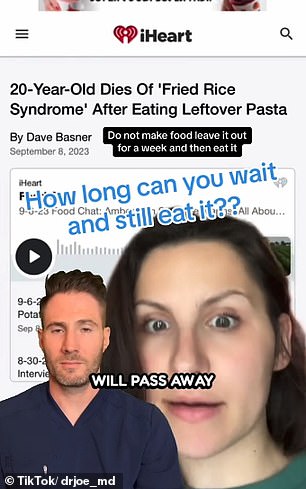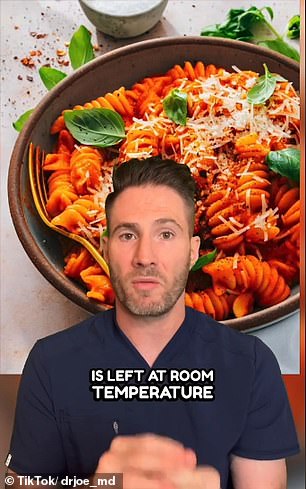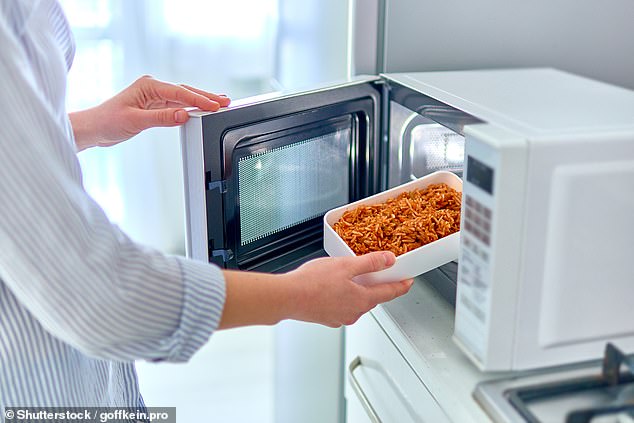I’m a microbiologist – this is how to avoid ‘fried rice syndrome’
- Leaving rice at room temperature for more than two hours can be fatal, doctors say
- A TikTok video sparked panic after the story of the deceased 20-year-old resurfaced
The ‘Fried Rice Syndrome’ has sparked fear online after a story about a 20-year-old who died in 2008 resurfaced on TikTok.
Leaving rice at room temperature for two hours can be fatal, Dr. Joe Whittington warns in the viral video.
The emergency doctor, who has 1.7 million followers, explained how the type of food poisoning – which also affects pasta – is caused by an overgrowth of Bacillus cereus.
Bacterial spores can survive the cooking process.
They multiply at room temperature and can produce toxins that cause vomiting and diarrhea, meaning leaving rice out for too long can be problematic.


Dr. Joe, who has 1.7 million followers, explained that the food poisoning is caused by an overgrowth of the bacteria Bacillus cereus. The bacteria poses a risk when cooked food such as pasta and rice is left at room temperature for too long

Leaving starchy foods on the counter for more than two hours can be fatal. Experts warn that you should immediately refrigerate your food and microwave it at 60°C
The unidentified 20-year-old, from Belgium, died after eating reheated spaghetti that he had left in his kitchen for five days.
Doctors who detailed the case in the Journal of Clinical Microbiology said B cereus was likely to blame.
Although death is rare, B cereus can cause gastrointestinal illness such as vomiting and diarrhea if food is not stored properly, explains Professor Enzo Palombo, a microbiologist at Swinburne University of Technology in Australia. The conversation.
Although pasta and rice are often the culprits, cooked meat and vegetables can also be plagued by the bacteria.
‘B. cereus is problematic because it has a trick up its sleeve that other bacteria do not have,” writes Professor Palombo.
‘It produces a type of cell called a spore, which is very resistant to heat.
‘So while heating leftovers to a high temperature may kill other types of bacteria, it may not have the same effect if the food is contaminated with B. cereus.’
B cereus can make you sick 30 minutes after eating.
According to the NHS, symptoms are relatively mild and usually last about 24 hours.
Professor Palombo says avoiding B cereus is all about minimizing the time your food stays in the ‘danger zone’ where toxins can grow.
Anything above refrigerator temperature and below 60 degrees Celsius, the temperature at which you should reheat food, poses a risk, he says.
To prevent this, Professor Palombo says that you should not wait until your food has cooled down, but simply put it in the refrigerator straight away.
“As a general guideline, you can follow the two-hour/four-hour rule,” he says.
‘So if something has been out of the fridge for a maximum of two hours, you can safely put it back. If it’s out longer, consume it and throw away the leftovers.
“If it’s outside for more than four hours, it starts to become a risk.”
